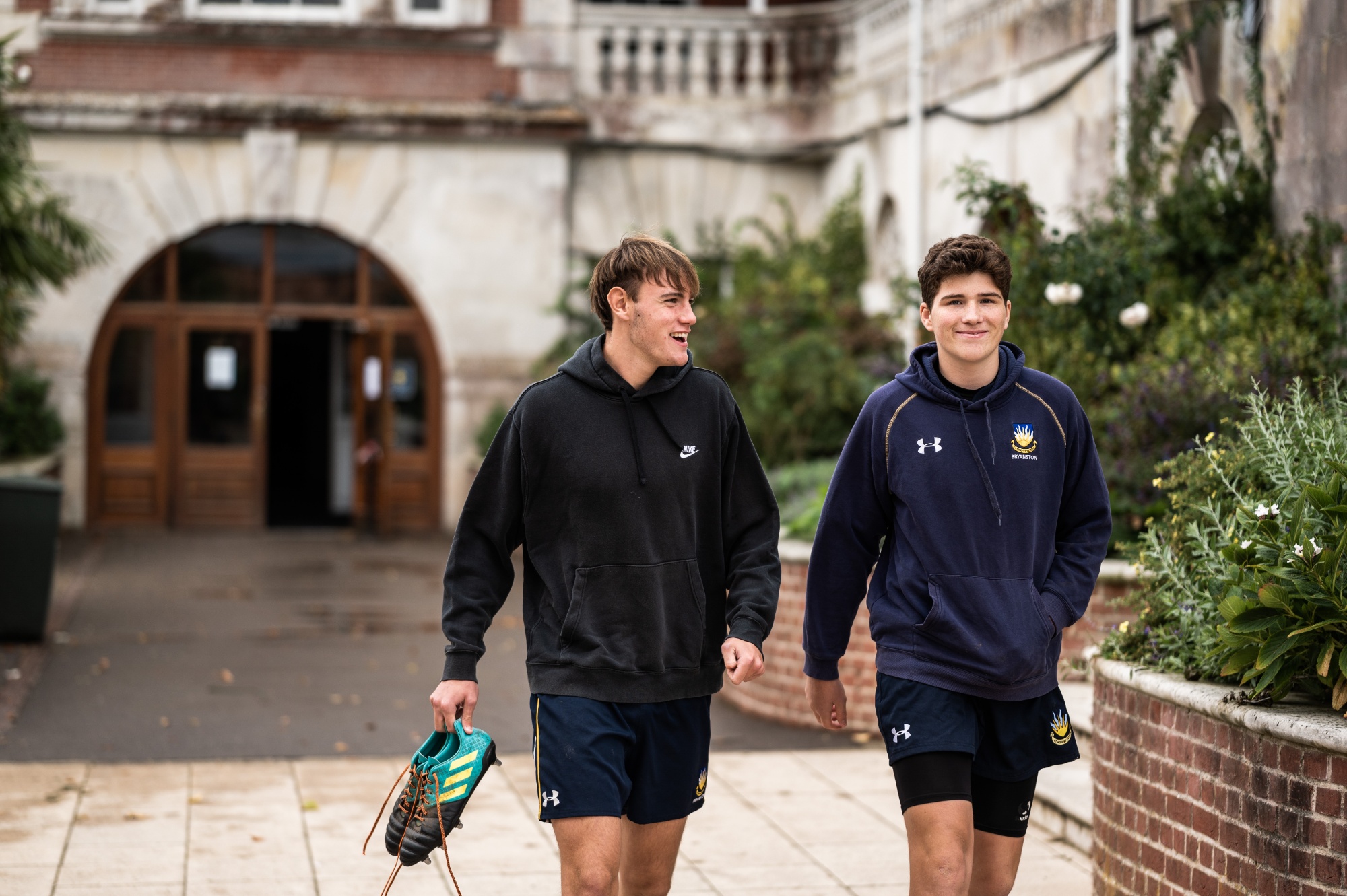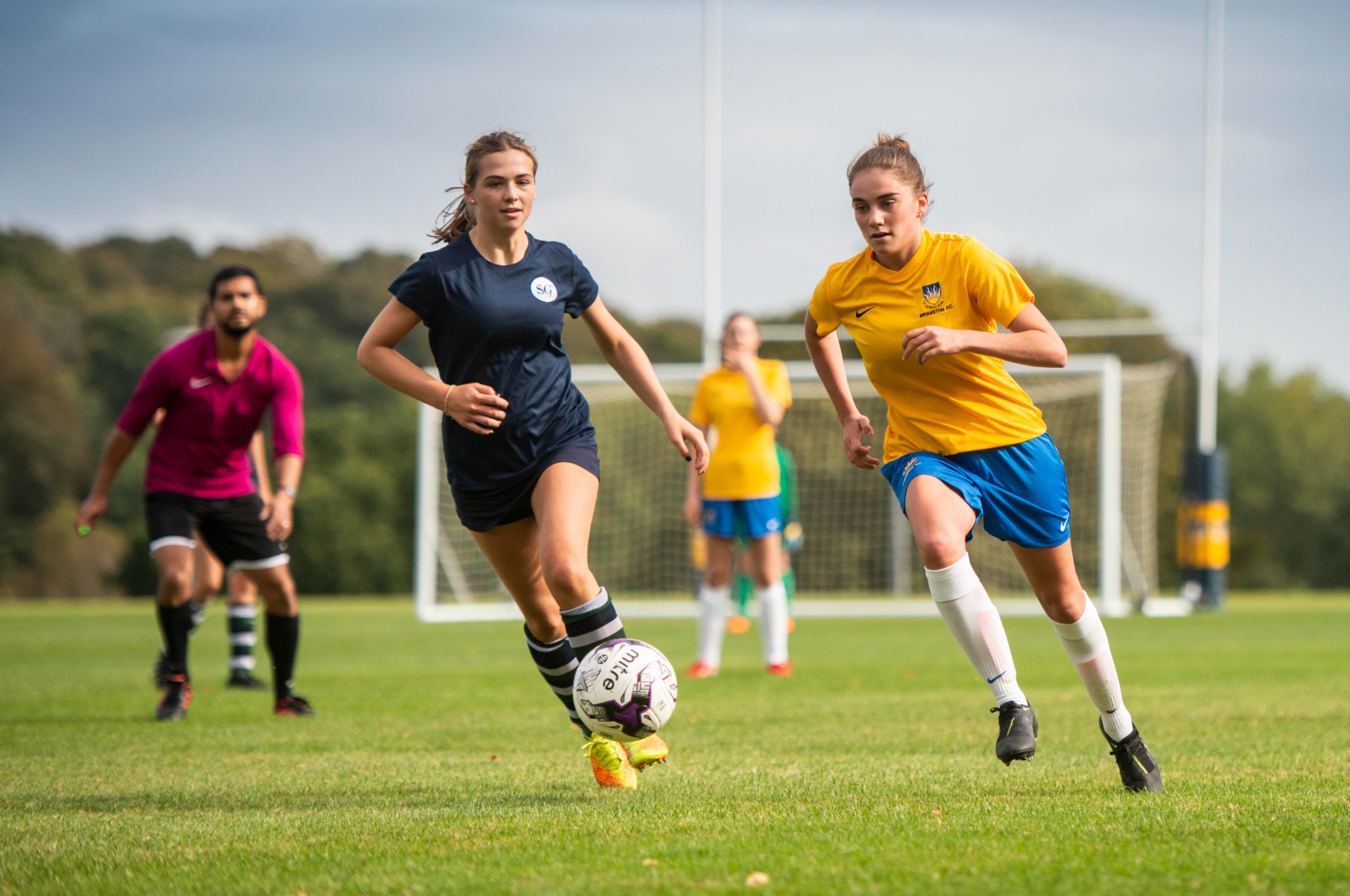Reflecting on a visit from Schools Consent Project
In our latest blog post, Teacher of English Mark Belassie-McCourt, discusses what happened when Schools Consen...
Read MoreIn our latest blog post, Deputy Head Co-Curricular Andrew Murfin explores how we, as educators, are in a privileged position to stand alongside our pupils in their journey to adulthood, and discusses how Bryanston continues to focus on a positive culture enhancing gender dynamics...
 At Bryanston, we aim to develop pupils with the character and confidence to push open doors and make a difference on the other side. What lays at the other side is changing constantly, so adaptability, understanding and courage are important qualities to foster.
At Bryanston, we aim to develop pupils with the character and confidence to push open doors and make a difference on the other side. What lays at the other side is changing constantly, so adaptability, understanding and courage are important qualities to foster.
Our current cohorts, that have been dubbed in some quarters ‘Generation CUB’, have had their formative years punctuated with Covid lockdowns, the Ukrainian conflict and Brexit. Add to that: the flux around the monarchy with the death of the longest-serving monarch and the recent Prince Harry revelations; the climate emergency; and the state of the economy. These are challenging times for us all, but the youth of today have grown up through unprecedented events that will continue to shape modern Britain. Whilst living in a state of emergency and with less ‘real-world experience’ to draw upon than adults, it’s not surprising that studies are reporting that children’s mental health issues and anxiety are on the climb.
As a school that champions individual spirit, we are mindful of not generalising about the experiences of a cohort and certainly not about a whole generation of children. We do promise to ensure that our children are better prepared for everything that life will bring. Whilst disruptive events will have an impact on the generations that live through them, our identity and how we think are ours to shape.
The zeitgeist of this current generation will also be defined by wars in the cultural landscape too. In terms of gender politics - huge strides have been made regarding the 'Me Too' and 'Everyone’s Invited' movements. As well as this, the legislation in Scotland to allow people to change their legally-recognised gender from 16 looks set to be battled out both in terms of the ethics of gender reforms and the interface between Scotland’s democracy and Westminster’s.
At Bryanston we haven’t shied away from gender discussions with Stephen Davies (HsM, junior boys’ house) writing about toxic masculinity and in partnering with Bold Voices to learn more about gender inequality and cultures of gender-based violence. Indeed, our term started with whole-school INSET, led by Dr Elly Hanson, on the negative cultural impact of pornography, which will inform the content of our PSRE programme.
Some of this can be uncomfortable for boys. The vast majority of whom live positive values, so could feel persecuted for displaying masculine traits. The linking of ‘male’ on the sex binary, with ‘masculine’ on the gender binary doesn’t have to equate to toxic. Indeed, there are many positive masculinities that we should encourage – in boys and girls and those elsewhere on the gender spectrum.
If wider society has been telling our boys to be masculine and to follow gender stereotypes such as, in simple terms, boys wear blue and girls wear pink, but then demonise certain masculinities, there’s the risk that they will feel rudderless. The rise (and fall?) in popularity of Andrew Tate is a warning that boys felt that their spaces are reducing. Misogynistic influencers build a narrative that boys are the victims, they use powerful algorithms to pray on these vulnerabilities to turn clicks into money. This is dangerous as it leads into spaces which propagate more hateful, toxic gender-based material. Locking him up and banning him from social media have been responses to the Andrew Tate problem – a discussion over whether this is a crime of violating free speech or a crime of negativity influencing, is not for here. Regardless of his social positioning we need to engage with the reasons underpinning his popularity. This will help us to break down the discussion before reassembling the narrative into what it is to be male.
 Continuing the colour analogy, the saying 'real men wear pink', suggests that men who feel comfortable in themselves will have the confidence to wear pink. i.e. a masculine anchor point may enable boys to venture out of the harbour into feminine waters. We see this in the highlighting of masculine traits in traditionally femininely ascribed activities that help boys engage in them. Providing safe spaces for our boys to discuss and engage with feminine masculinities enables those behaviours and characteristics to become part of the construct of what it is to be male – unbounded thinking. Last week we were lucky enough to have some staff training by 'Men at Work', led by Michael Conroy, on engaging with boys in constructive dialogue around gender issues.
Continuing the colour analogy, the saying 'real men wear pink', suggests that men who feel comfortable in themselves will have the confidence to wear pink. i.e. a masculine anchor point may enable boys to venture out of the harbour into feminine waters. We see this in the highlighting of masculine traits in traditionally femininely ascribed activities that help boys engage in them. Providing safe spaces for our boys to discuss and engage with feminine masculinities enables those behaviours and characteristics to become part of the construct of what it is to be male – unbounded thinking. Last week we were lucky enough to have some staff training by 'Men at Work', led by Michael Conroy, on engaging with boys in constructive dialogue around gender issues.
As a PE Teacher, and one whose MA degree focused on the role of co-curricular activities in gender identity formation, the gender-appropriations around sports has long been of interest. At a former school, to be at the vanguard of the transition to coeducation following 400 years of all-boys education was fascinating and, at Bryanston, one of the early pioneers of transitioning to coeducation, using our positive culture to enhance gender dynamics continues to be a focus.
In academic literature, gender appropriations for various sports exist; with some sports classified as feminine, some masculine and some gender-neutral. The aesthetic qualities versus physical strength being a key component in those classifications. It’s the subsequent linking of those gender-ratings with different sexes that creates society’s stereotypes, and negative associations of individuals ‘queering’ or participating in cross-gender sports. Again, huge strides have been made here with role models breaking those boundaries – male gymnasts and divers; female boxers and rugby players. Who can forget the Lionesses, who cleaned up at the BBC’s annual SPOTY awards over Christmas following their success at the Euros. On a personal note, a family trip to the Emirates (my daughter supports the Arsenal) to watch a WSL match in front of a full house, being part of that experience, I felt a positive step had not just been taken but that there was tangible change.
 At Bryanston all of our sports, and co-curricular activities, are open to all pupils. At the end of the month we host a conference focused on women in sport – Sport in Her Shoes – which, amongst other topics, will focus on the menstrual cycle, female-centric nutrition, coaching girls and the female mindset. The overall aim to learn about and tackle those challenges that women face in engaging with sport, to ensure we continue to inspire, stimulate and liberate.
At Bryanston all of our sports, and co-curricular activities, are open to all pupils. At the end of the month we host a conference focused on women in sport – Sport in Her Shoes – which, amongst other topics, will focus on the menstrual cycle, female-centric nutrition, coaching girls and the female mindset. The overall aim to learn about and tackle those challenges that women face in engaging with sport, to ensure we continue to inspire, stimulate and liberate.
These are challenging times, and complex issues to grapple with. We each have different views and move at different paces, that’s what makes us individual. And an individual approach is needed in freeing their spirits to find their mission – that’s the Bryanston promise. When our pupils step through the door and take steps into their future world, we want them to love their minds and make a difference in creating a more inclusive world.